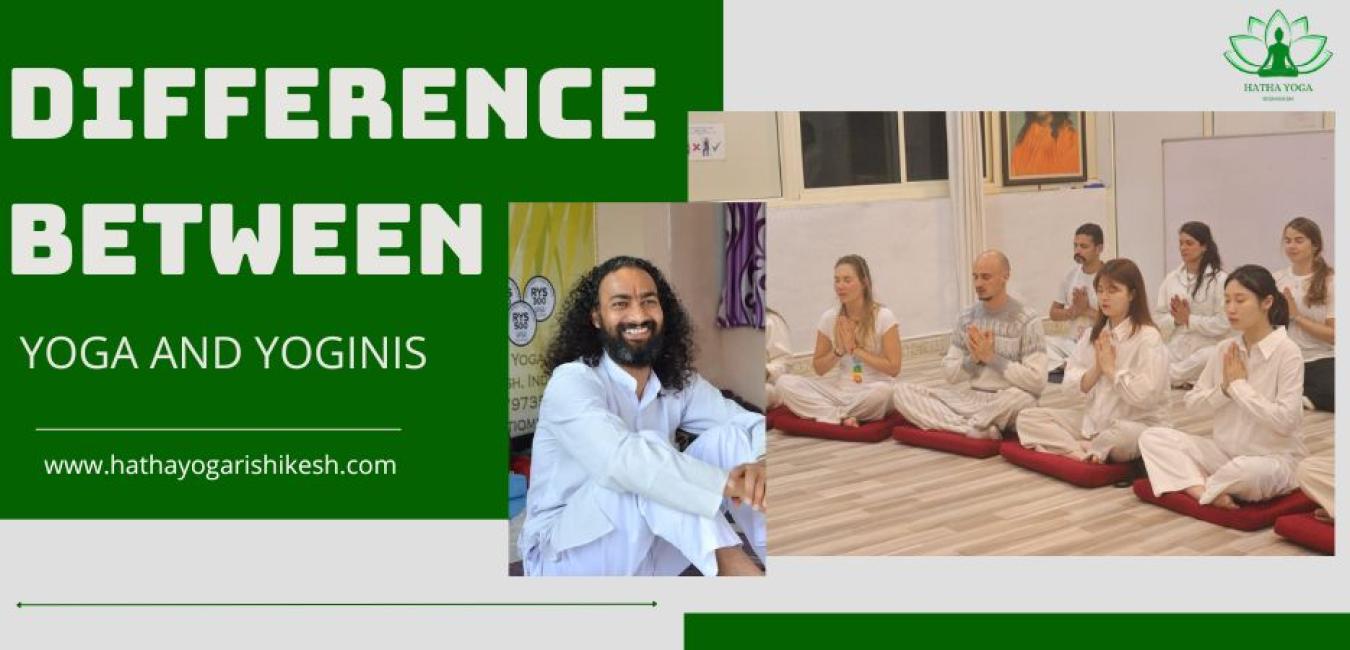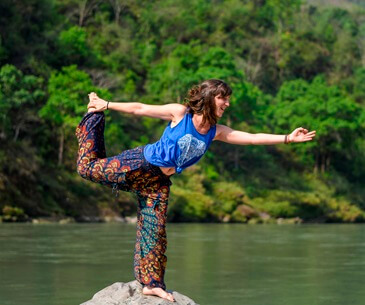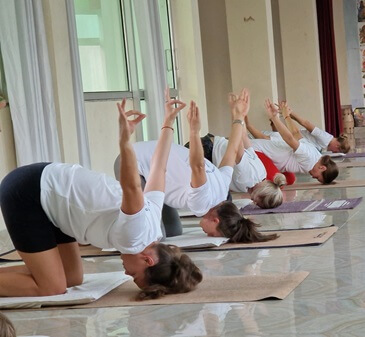
20 Mar, 2025
Are you a yogi or yogini? Have you ever asked yourself what the distinction between yoga and yoginis is? Although the terms seem similar, they carry different meanings when used in the context of spiritual practice. Yoga is the extensive practice that includes physical, intellectual, and spiritual development, while yoginis are the devoted female practitioners of the ancient practice.
Table of Contents
Identifying this distinction allows us to look deeper into the deeply rooted meaning of yoga beyond the physical practices. If you are new to yoga or an experienced yogi, becoming aware of the contributions of yoginis to the formation of spiritual practices can give us a new understanding.
Distinguishing between the practice of yoga and yoginis as spiritual practitioners gives us a better vision of the depth of the yogic tradition. In this blog, we shall discuss these differences, define terms, and answer some of the most frequently asked questions like 'is a yoga teacher referred to as a yogi’? 'and yogic principles' and their place in everyday life.
What is Yogic?
The word yogic means anything pertaining to yoga, such as its philosophy, principles, and practices. A yogic way of life means following the basic teachings of yoga, such as physical postures (asanas), breath control (pranayama), meditation (dhyana), and moral principles such as non-violence (ahimsa) and truthfulness (satya). People who follow a yogic way of life try to achieve inner equilibrium, peace, and final enlightenment.
Understanding Yoga and Yoginis
Yoga is not simply an exercise; it is a deep spiritual practice that originated in ancient India. The term yoga comes from the Sanskrit root yuj, meaning 'to unite'—a reference to the unification of the body, mind, and spirit.
On the other hand, yoginis are women who practice yoga and have devoted themselves to this tradition.In classical Indian culture, a yogini is not merely a woman who practices yoga but an individual who embodies yogic knowledge and spiritual commitment. Traditionally, yoginis were considered to be enlightened individuals, usually possessing profound mystical knowledge and supernatural powers.
Yogi Yoga: The Path of the Dedicated Practitioner
The term yogi yoga means the yoga that is practiced by a yogi, a male practitioner intensely involved in yogic philosophy. Similar to yoginis, yogis also adopt an austere path of self-enlightenment. A yogi devotes his life to contemplation, awareness of the self, and renunciation of worldly desires.
Male or female, yogi or yogini, both seek to go beyond the confines of the material world and reach higher planes of consciousness. The distinction is one of gendered language and historical context, but the ultimate goal is the same: spiritual enlightenment.
Also Read: Hatha Yoga Poses For Beginners
Is a Yoga Teacher Called a Yogi?
Several individuals ask, is a yoga teacher called a yogi? Although the terms are usually interchangeable, they are not exactly the same. A yoga teacher is one who teaches yoga asanas and philosophy, but not all teachers are necessarily yogis.
A real yogi or yogini transcends the practice of teaching body postures. They are an embodiment of the spirit of yoga, living in accordance with its principles both on and off the mat. Whereas yoga teachers may teach students in practice, it takes a deeper spiritual commitment to be a yogi.
The Masculine and Feminine Energies in Yoga
Yoga honors the union of masculine and feminine energies, typically represented by Shiva (masculine awareness) and Shakti (feminine creative energy). In this scenario, a yogi is the meditative and disciplined one, and a yogini is the nurturing and intuitive side of spiritual practice.
This does not imply that men alone can be yogis and women yoginis. The terms indicate the energy each person vibrates on, not their biological sex. Some schools even hold that an evolved yogini goes beyond gender altogether, becoming a purely spiritual entity beyond flesh.
The Role of Yoginis in Spiritual Traditions
Although yoga is usually related to Hindu philosophy, the term yogini can be encountered in other spiritual traditions. In Buddhism and Jain populations, female yoginis are named ascetics whose lives are given to meditation and enlightenment. The tantric cults even hold yoginis sacred as goddesses with the authority to guide other beings towards paths of spiritual freedom.
Modern Yoginis and Their Influence
Nowadays, yogini is frequently used to refer to any woman who practices yoga, but originally, yoginis were enlightened masters. Most of today's yoginis combine the ancient teachings with modern-day knowledge, sharing yoga with the masses through classes, workshops, and the internet. They motivate millions to adopt a yogic lifestyle, combining the teachings of the past with the demands of the present.
The Spiritual Path of Yoginis
Apart from their yogic commitment, yoginis are usually related to spiritual abilities and profound mystical experience. Some of the ancient works portray yoginis as heavenly beings who have attained mastery over energy control and have access to higher planes of existence. Yoginis in tantric traditions are depicted as being personifications of divine energy and have the ability to lead their followers to enlightenment.
Additionally, yoginis in temples and spiritual texts are regularly portrayed as invincible forces endowed with magical powers, which among other powers enable them to heal, prophesize, and overcome corporeal limitations. This underscores their specific position across the different spirituality circles and validates their significance as independent of mere practice of yoga alone.
The Evolution of Yoginis in Modern Yoga
With yoga spreading all over the globe, the image of yoginis has changed. Most women practitioners now openly call themselves yoginis, stressing their devotion to physical as well as spiritual health. Contemporary yoginis now assume leadership in yoga communities, conducting retreats, training instructors, and building platforms for integrative wellness.
The emergence of yoginis in modern yoga has also inspired more women to adopt yoga as a means of self-empowerment. Most female yogis are concerned with cultivating body positivity, self-love, and mindfulness, which allow yoga to reach individuals from all backgrounds.
Read Also: Hatha Yoga Sequence
In the End
The distinction between yoga and yoginis is their definition: yoga is the spiritual practice, whereas yoginis are female practitioners committed to the yogic path. A yogi or yogini goes beyond merely being a yoga teacher; they represent a higher level of commitment to spiritual growth. Understanding the distinction between yoga and yoginis makes us see the great depth of yoga's teachings and traditions.
As yoga develops and evolves with changing lifestyles, the role of yoginis is never far from view. Through a consideration of these ideas, we not only further our own knowledge of the yogic journey but also gain inspiration from the commitment and insight of previous and contemporary yogis and yoginis. Whether one is a neophyte or a sophisticated practitioner, accepting the spirit of yoga has the power to bring about fundamental change, peace to your mind, body, and soul.


